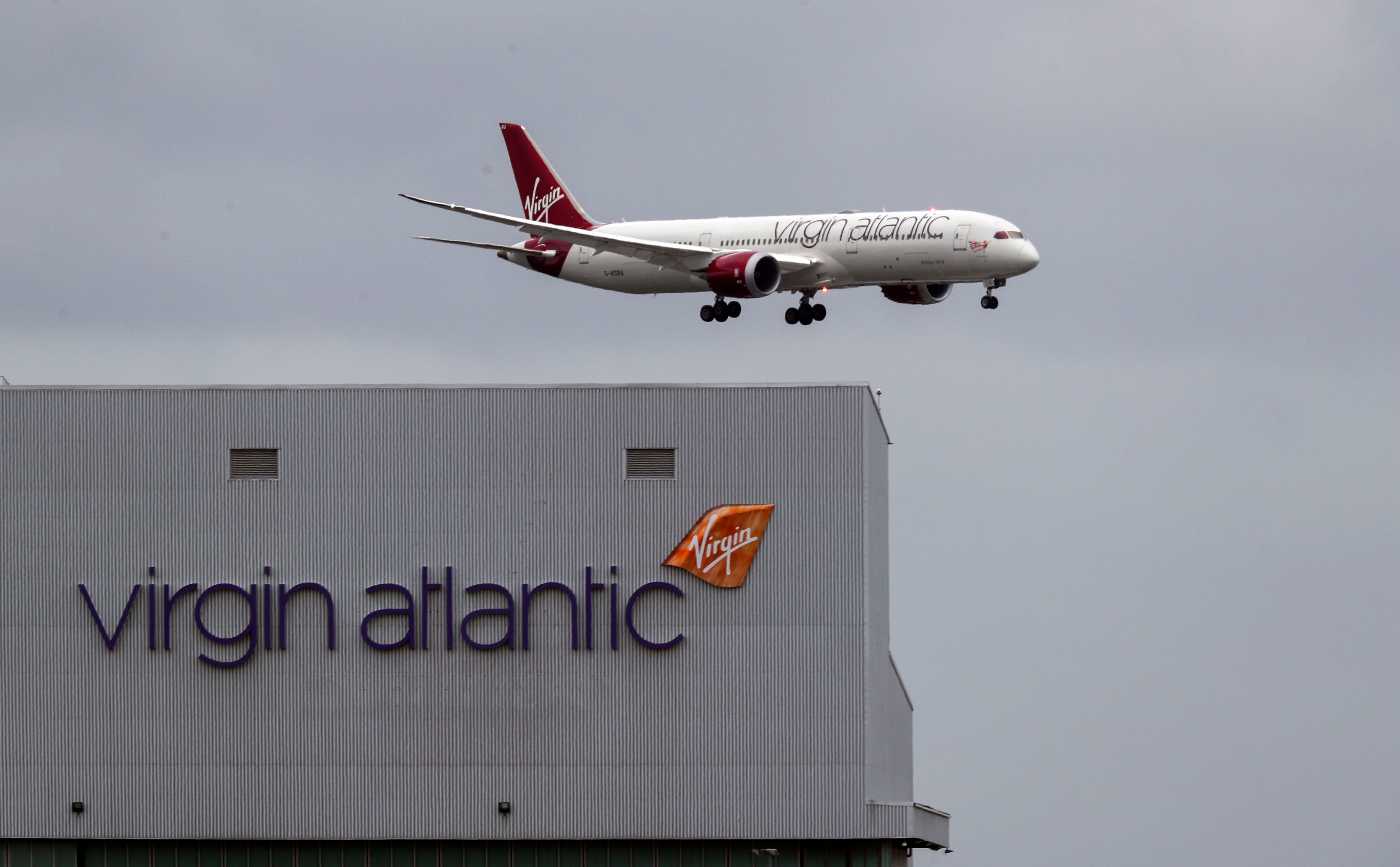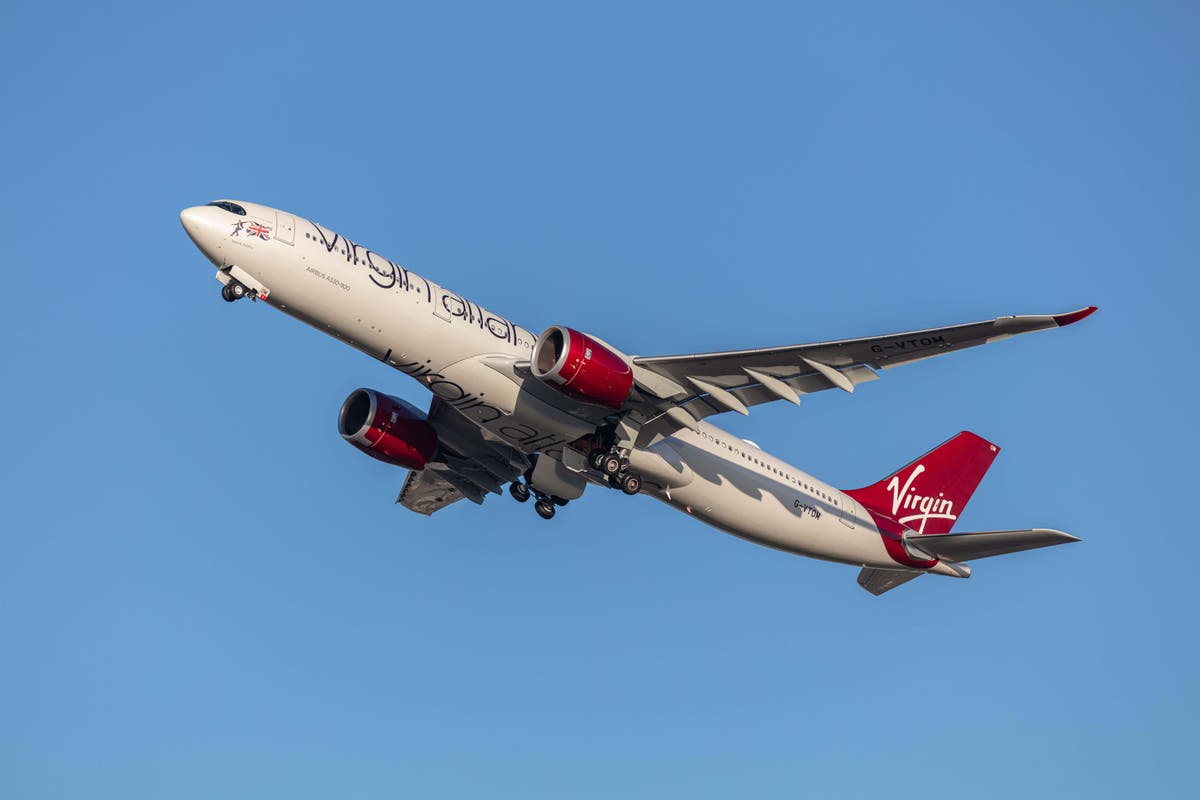A Virgin Atlantic advert claiming the airline was the first to fly transatlantic on 100% sustainable aviation fuel has been banned for misleading consumers.
The radio ad, heard on November 24, stated that the airline’s Flight 100 from London Heathrow to New York’s JFK would make it the world’s first commercial airline to fly transatlantic on 100% sustainable aviation fuel.
The Advertising Standards Authority (ASA) received five complaints that the “100% sustainable” claim gave a misleading impression of the fuel’s environmental impact.
Virgin Atlantic said they had previously been announced as the winner of a competition run by the Department for Transport (DfT) to “support industry to achieve the first net zero transatlantic flight on an aircraft using 100% sustainable aviation fuel within one year”.
The airline said the ad’s wording mirrored the terms used by the DfT in its competition invitation.
They did not think listeners would understand the ad to mean that the fuel used for Flight 100 was derived from completely sustainable sources, did not generate CO2 or other emissions that had an adverse environmental impact during use, and that over its full lifecycle had no adverse environmental impacts.
The airline said the ad did not claim that the fuel was 100% sustainable, or give a misleading impression about the absolute or relative environmental nature, impact or credentials of sustainable aviation fuel, but factually described how the flight was powered exclusively by sustainable aviation fuel.
Virgin Atlantic confirmed that sustainable aviation fuel produced the same level of CO2 emissions during flight as traditional jet fuel.

However, because sustainable aviation fuel utilised carbon that had recently been captured from the atmosphere, the CO2 savings were relative to a net increase in atmospheric carbon that would have been emitted had fossil fuels been dug up and used.
It claimed that overall, Flight 100 had delivered a “lifecycle” CO2 emissions saving of 64%.
The ASA found that the ad was misleading, as it implied that sustainable aviation fuel had no carbon emissions or a wider environmental impact, which was not the case.
It acknowledged that the specific sustainable aviation fuel mix used for Flight 100 was calculated to have delivered savings of 64% in greenhouse gas emissions compared to fossil-derived aviation fuel over its full lifecycle, but this was not stated in the ad.
Miles Lockwood, the ASA’s director of complaints and investigations, said: “Our rulings have made it clear that businesses need to be wary of using statements like ‘100% sustainable’ or ‘sustainable’ when advertising their products and services.
“Claiming that a product or service is sustainable creates an impression that it is not causing harm to the environment and for that reason we expect to see robust evidence that this is the case.
“In this case, while sustainable aviation fuel does emit less carbon emissions than regular aviation fuel, it nevertheless still generates significant carbon and non-carbon emissions in-flight and its production at scale can have wider environmental costs and trade-offs.
“Because of that, it’s important that claims for sustainable aviation fuel spell out what the reality is so consumers aren’t misled into thinking that the flight they are taking is greener than it really is.
“We all have a part to play in tackling climate change, and we want businesses to talk about their environmental credentials. That’s why we’re continuing to provide training and free advice to advertisers so they can be confident that their ads are accurate and precise.”
A Virgin Atlantic spokeswoman said: “We’re committed to achieving net zero by 2050 and key to this will be using sustainable aviation fuel, which is one of the most immediate levers to decarbonising long haul aviation.
“Flight 100 proved that sustainable aviation fuel is a safe, 100% drop-in replacement for fossil fuel and while 100% adoption across every flight may be decades away, we demonstrated the radical collaboration required to drive increased production, supply and uptake in the UK.
“While we are disappointed that the ASA has ruled in favour of a small number of complaints, we remain committed to open, accurate and transparent engagement on the challenge of decarbonisation.”

